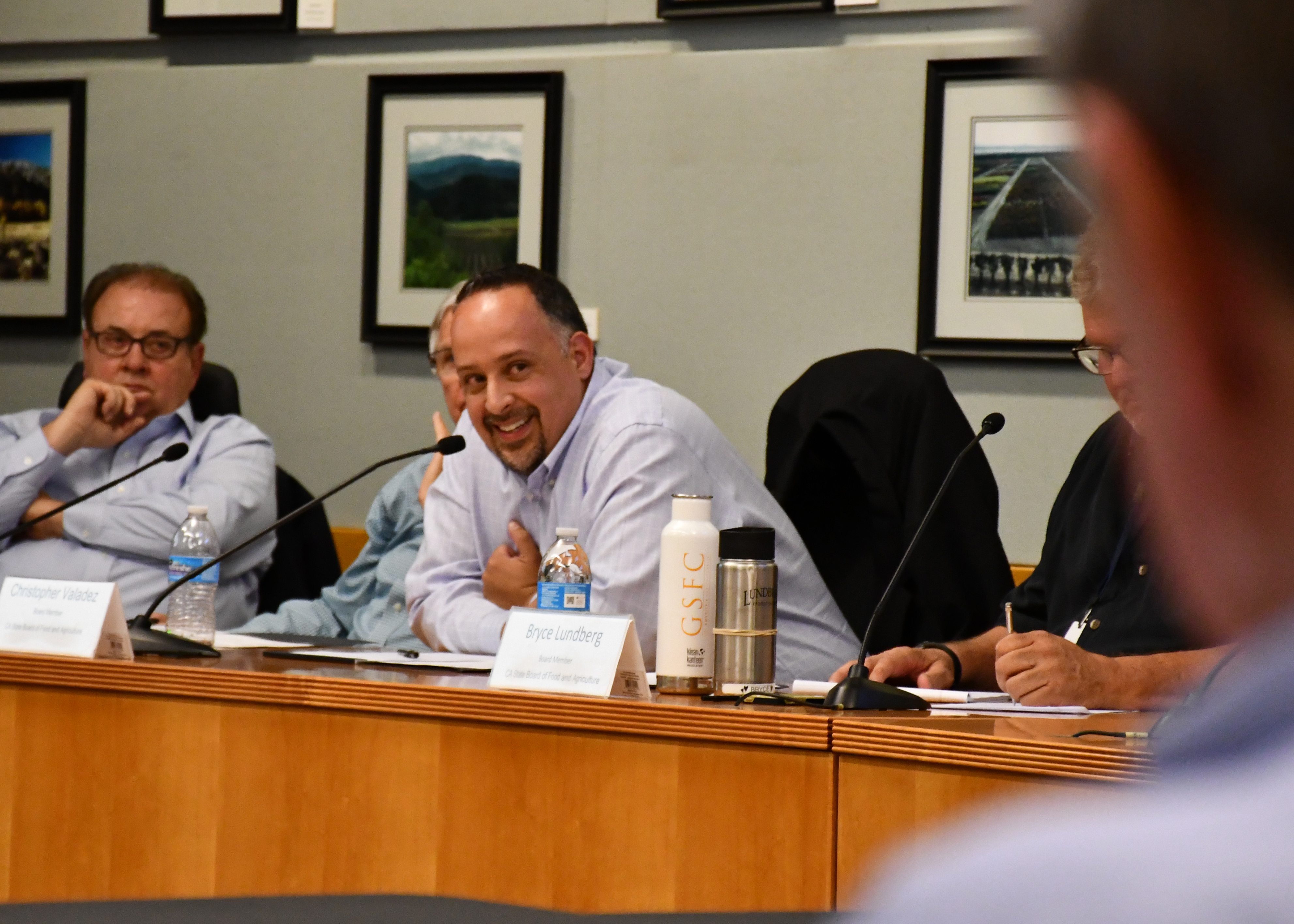As the state pumps nearly $1 billion into procuring N95 masks for healthcare workers, other industries deemed essential are left competing for purchases and getting by on cloth masks when possible. That is not likely to change anytime soon.
On Monday, Gov. Gavin Newsom said the state has now distributed more than 45 million N95 surgical masks. Through an undisclosed contract, the administration has procured another shipment of 10 million masks over the last week.
“The good news is we're broadening the availability of these masks to more and more people, more and more sectors of our economy,” he said at his daily press briefing.
CDFA Secretary Karen Ross had a similar message for the State Board of Food and Agriculture at its monthly meeting on Tuesday.
“We’ll be able to supplement some, but not all, needs,” she said. “It will still be up to employers to source whatever they can.”
Ross explained how inter-agency teams are working on an adjudication process to fill gaps for essential workers that are “non-healthcare and non-first responders.” Yet these will not be medical-grade N95 masks. She acknowledged N95 masks are necessary for pesticide applications and certain functions in grain mills.
“We still do not have enough for all of our health practitioners to the level we know we're going to need over the rest of this year,” she said.
Once the state establishes how many non-medical masks it has, it will distribute those through county offices, with ag commissioners being the key point of contact.
CDFA has made a list of potential suppliers of N95 masks, but the results have been inconsistent, said Ross. The Department of Pesticide Regulation has made recommendations on alternatives to N95s, but those products can be just as scarce, considerably more expensive or not helpful, since one suggestion is to just choose a different product.
An informal agriculture subcommittee within Newsom’s Task Force on Business and Jobs Recovery has been laying a case to the administration on the need for N95 masks as well as sanitation materials. The group recently surveyed 1,500 companies across 45 counties to assess their needs for a report to Newsom.
“We've also taken that to our California congressional delegation,” said Almond Alliance President Elaine Trevino, who recently joined the task force. “We're trying to maximize this effort not just at the state level, but also on the on the federal level as well.”

Grower Shipper Association of Central California President Chris Valadez
Trevino added that the group has asked the state to coordinate guidance on worker safety between its federal and local partners, rather than regulatory enforcement when PPE is in such short supply.
As more manufacturers come online and supply chains are streamlined, ag organizations are having more success with procuring masks.
Chris Valadez, president of the Grower Shipper Association of Central California, said he has placed an order for 1,000 masks and so far has received about 100,000. He did not specify if any of those are medical grade.
Growers are finding other shortcomings with cloth masks as well. Farmer Garrett Patricio of Westside Produce, who also sits on the task force, said he has bought about 1,500 cotton masks for his employees. But many of them are too heavy to fit right or are not comfortable as temperatures have been rising to 100 degrees.
A survey by the California Farm Bureau Federation released Tuesday found that about 30% of the farmers were “unable to undertake routine planting, cultivation or crop-care activities due to lack of PPE, such as respiratory protection.”
For more news, go to: www.Agri-Pulse.com


